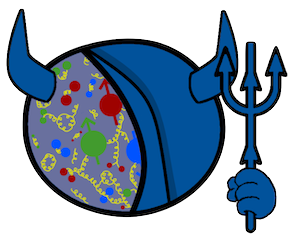Speaker
Description
Polarization measurements represent an important tool for understanding the particle production mechanisms occurring in proton proton collisions. In particular, for quarkonium states, the very small polarization measured at the LHC represents a serious and a long-lasting challenge for theoretical models. When considering heavy-ion collisions, particle polarization could also be used to investigate the characteristics of the hot and dense medium (quark-gluon plasma) created at LHC energies. Recently, it has been shown that light vector mesons produced in Pb–Pb collisions are polarized, an effect likely due to the presence of a large angular momentum of the strongly interacting system produced in non-central heavy-ion collisions, because of spin-orbital coupling. It has also been conjectured that quarkonium states could be polarized by the strong magnetic field generated in the early phase of the evolution of the system.
\par This talk will present the first measurement of J/$\psi$ polarization in Pb--Pb collisions at forward rapidity and the recent measurements of spin alignment for $K^{\star}$(892) and $\phi$(1020) mesons at midrapidity for different reference frames (event plane, production plane, random plane) in Pb--Pb collisions at $\sqrt{s_{\rm NN}}$ = 5.02 TeV, obtained with the ALICE detector. The results will be discussed and compared with previous measurements from the pp collision system.

